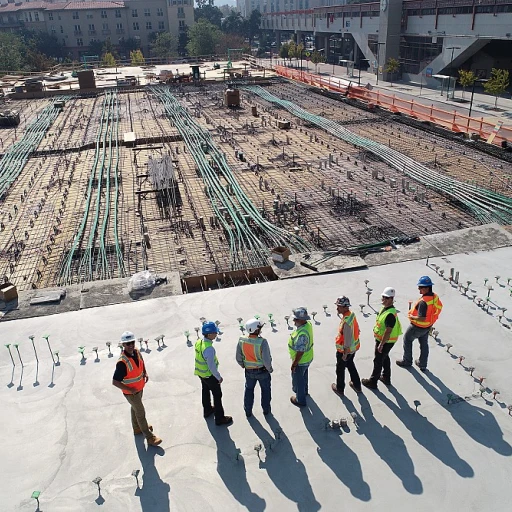
The Complexity of Background Checks
Understanding the Complexity of the Process
When diving into background checks, it’s essential to appreciate the intricate machinery behind their execution. The screening process is not merely a superficial glance through records; it is an elaborate chain of actions that extends over several steps and involves multiple stakeholders. Each stage requires meticulous attention to ensure a comprehensive evaluation of an individual’s history. At its core, the background check process encompasses checks for criminal records, employment background, and verification of credentials. For many businesses, the employment background check is a crucial component of the hiring process, but its complexity can introduce delays. Each aspect of a candidate’s life that a company seeks to evaluate will invariably extend the amount of time a check takes; this is due to the multi-faceted nature of background screening. Additionally, various types of information need to be confirmed amidst this complexity. Criminal checks, for instance, necessitate a thorough search across multiple databases, and sometimes, across international borders. This requires significant human verification and can add to the time taken in achieving accurate results. Moreover, businesses must work within the constraints of legal requirements and industry standards, which add further layers to the scrutiny process, affecting the overall turnaround time. Employers should be cognizant that while background checks are indispensable, their scope can influence how long it will take for a candidate’s screening to conclude. Understanding that multiple elements can impact the timeline will enable companies to better navigate potential delays, ensuring both efficiency and thoroughness in their hiring process. For more detailed insight into the timeline involved in background checks, you can explore understanding the timeframe of background checks, which delves deeper into the nuances of these essential evaluations.Legal and Regulatory Challenges
Regulatory and Legal Complexities
The background check process is subject to various legal and regulatory challenges that can significantly extend the time it takes to complete. Background screening must abide by numerous laws, such as the Fair Credit Reporting Act (FCRA), which governs how background checks are conducted and used in employment decisions. Navigating these laws requires careful consideration to ensure compliance, adding a layer of complexity to the process. Employers must also handle state-specific regulations that can differ significantly across regions. Different states have unique laws affecting checks, such as those concerning the duration for which criminal records can be reported. This variability complicates the task for businesses that operate in multiple locations, impacting the turnaround time for screenings, as tailored procedures are often required for each jurisdiction. In addition to compliance obligations, some regulatory guidelines necessitate longer retention of data related to background checks. Such requirements are put in place to protect both the employer and the applicant, ensuring transparency and accuracy. However, adhering to these standards means that companies may take longer to complete each check, influencing the overall timeframe of the hiring process. The involvement of international laws further complicates employment background verifications when hiring across borders. Background checks conducted internationally require familiarity with foreign regulations, which often involve intricate legal frameworks that demand expert knowledge and meticulous attention. Delays can also arise due to verification procedures that are legally mandated. For example, specific employment background checks may require obtaining official documents or conducting criminal record searches that are bound by strict legal protocols, contributing to prolonged waiting periods for results. Overall, the legal landscape surrounding background checks can create notable obstacles that affect the overall duration of the screening process. Navigating these regulatory challenges is essential for maintaining compliance and ensuring that checks are conducted legally and ethically.Technological Advancements and Limitations
Integration of Innovative Platforms and Their Challenges
In the contemporary landscape of background checks, technology plays a pivotal role in altering the way background screenings are executed, though it is not without its limitations and challenges. As businesses increasingly rely on digital platforms to conduct employment background checks, the process aims for quicker turnaround times and more comprehensive coverage of criminal records, employment history, and other critical aspects.
One significant advancement has been the use of automated systems that quickly sift through vast amounts of data to deliver insights integral to the hiring process. These platforms harness technologies such as AI and machine learning to refine the screening process, reducing the incidence of human error and speeding up turnaround times. However, the reliability of these systems can often hinge on the quality of the databases they access, raising concerns about the accuracy and completeness of the records.
Despite the considerable progress, technology in background checks is not a panacea. Challenges, such as discrepancies in criminal records and pre-employment screenings, can take longer than anticipated to clear up due to limitations in how these systems interface with various jurisdictional databases. Furthermore, the intricacy of integrating technological solutions with existing legal and regulatory frameworks can often lead to unforeseen delays in the screening process. Maintaining compliance with varying state regulations without slowing down the process requires careful calibration of these technological tools.
Additionally, though technology promises to streamline processes, companies often experience bottlenecks during high-volume times when demand for background checks surges. In these scenarios, even the most sophisticated systems can become overwhelmed, leading to extended background verification periods.
Volume and Demand Fluctuations
Fluctuating Demands and Their Impact on Delay
The ebb and flow of demand significantly impact the efficiency and processing time of background checks. Companies often experience high-volume periods, such as when they're hiring for multiple positions or launching large-scale recruitment drives. During these times, the background check process can become bottlenecked, leading to longer processing times. The employment background check process can also face challenges from fluctuating demands, which can complicate matters further. For example, when a surge in hiring occurs, the checks take longer due to the increased workload on screening companies and the verification process handlers. This high demand can lead to delays, impacting employers' hiring plans and extending the turnaround times that businesses and individuals have come to expect as standard.- Impact of Economic Cycles: Economic changes influence hiring trends, which directly affect the volume of background checks requested. During a booming economy, businesses might be hiring vigorously, thereby increasing the demands on background screening services.
- Industry-Specific Trends: Certain sectors, like retail and hospitality, may face seasonal spikes in hiring, causing increased demand for background verifications, especially during holiday seasons or special promotional events.
- Company Scale and Recruitment Methodologies: Larger organizations may require extensive background checks that involve criminal records, credit history, and detailed employment verification. This can extend the time frames required for checks to be completed, especially during peak recruitment phases.













